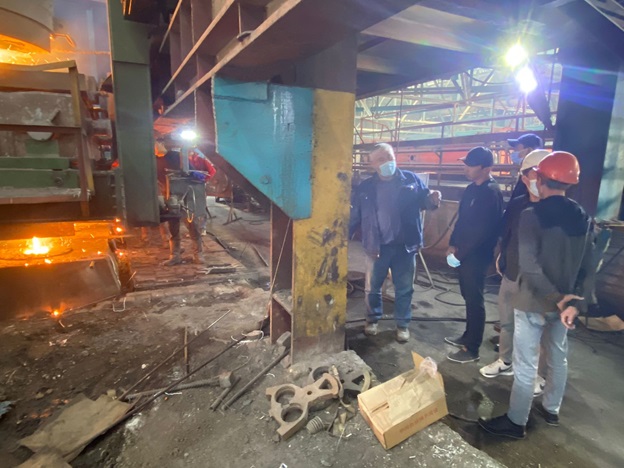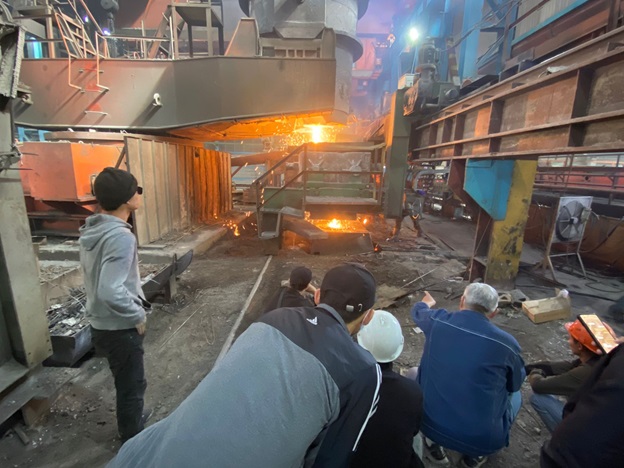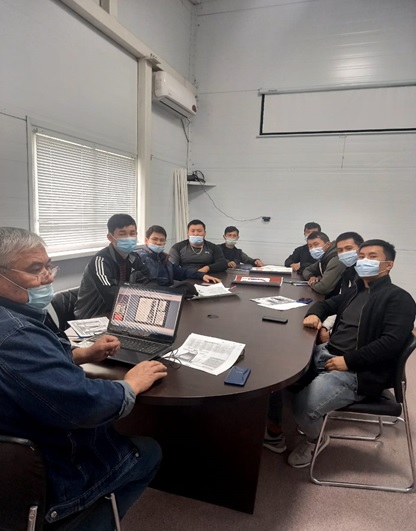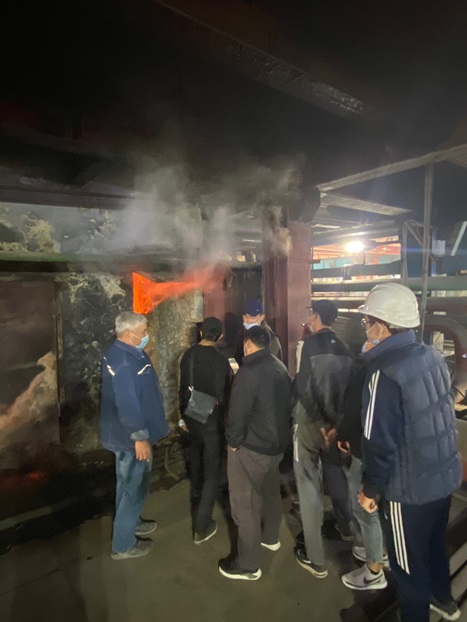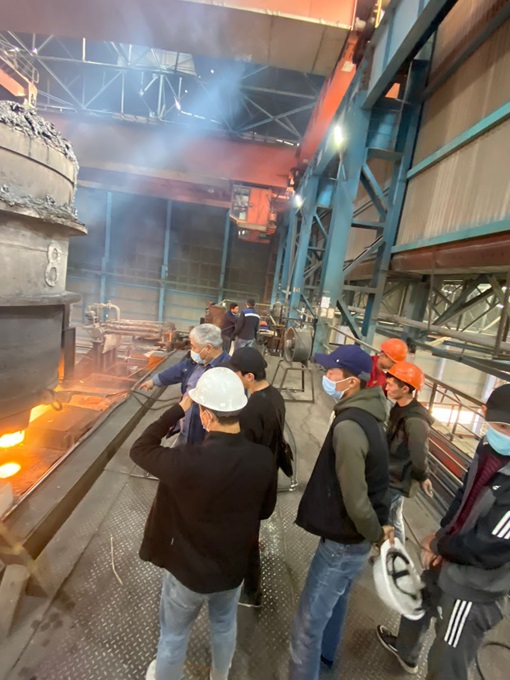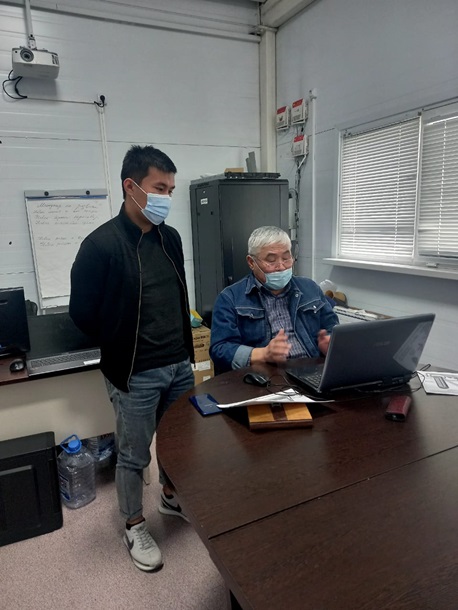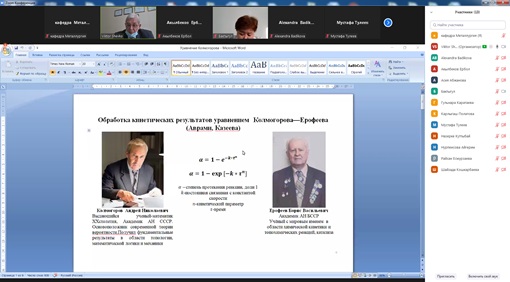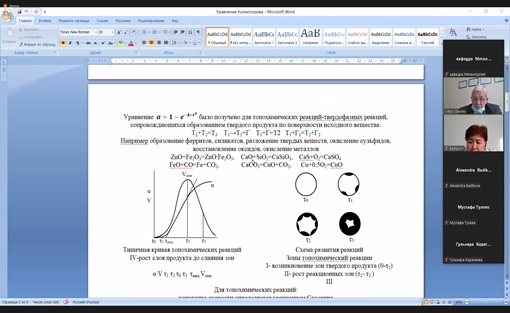Educational methodical work
- Hits: 458
In 2020-2021 academic year year at the Department of Metallurgy, the organization of the educational process was carried out in 3 educational programs and in 1 specialty.
The curricula of the disciplines were revised and new curricula were developed in accordance with the QMS SKU PR 7.03-2015. The curricula were reviewed at the meetings of the department on June 16, 2020 (minutes No. 11) and December 20, 2020 (minutes No. 5) and approved by the UMC SKU named after. M. Auezov.
During the reporting period, classes were held in English in 3 disciplines.
For all disciplines of the bachelor's degree, curricula were revised, and curricula were developed for the disciplines of bachelor's, master's and doctoral studies.
For the 2020/2021 academic year, 29 UML were planned at the Department of Metallurgy, of which: 18 in the state language, 11 in Russian; of which: 1 textbook, 2 textbooks, 9 lecture notes; 16 - guidelines, 1 - collection of cases.
All planned UML are developed, discussed at the meetings of the Department of Metallurgy.
For all readable disciplines of the department, there is the necessary educational and methodological literature. The provision of disciplines conducted in the state language is sufficient.
For each discipline, maps of methodological support have been developed, taking into account all the literature located in the educational and information center and at the department. All methodological support cards are designed in accordance with F. 7.03-02.
Development and use of modern educational technologies and forms of education.
Training is carried out on a block-modular credit system, active and interactive teaching methods are used.
The educational process uses a multimedia board, posters in the following disciplines: Metallurgy of tungsten and molybdenum, Metallurgy of noble metals, Design of metallurgical shops, factories for enrichment and preparation of metallurgical raw materials, Technology of metallurgical processes, Theory of metallurgical processes, Equipment for the production of non-ferrous metallurgy. The INTERNET network was used as a source of information when performing research work, educational and research work of students, course work.
The following calculation programs are used as innovative technologies at the department in the educational process:
- "Astra" - a multi-purpose software package for modeling equilibrium states and processes in high-temperature systems with phase and chemical transformations;
- "HSCChemistry 6.0" - a software package for calculating the equilibria of chemical reactions.
These software calculations are used to calculate thermodynamic parameters in term papers in the discipline "Educational and research work of a student" and practical work in the discipline "Theory of metallurgical processes", "Planning and setting up research".
The educational process is carried out in accordance with modular educational programs and working curricula in the specialty 5B070900 - "Metallurgy".
Training of specialists is carried out in special disciplines, including compulsory basic, major disciplines and at the choice of students enrolled in the State Educational Standards in their specialty.
For all disciplines of the curriculum, there are educational and methodological programs "SYLLABUS" and educational and methodological complexes, as well as guidelines for laboratory and practical work. The provision of profiling and basic disciplines of the specialty with the specified methodological developments in the Kazakh and Russian languages is 100%. Academic disciplines are also provided with textbooks, teaching aids in Kazakh in Russian.
Teachers of the department in the classroom widely use a variety of teaching methods, both traditional and innovative technologies. Most classes are conducted using problem-based learning, presentations, scientific reports, demonstration and subsequent discussion of educational videos; the use of specialized software systems (thermodynamic modeling: Astra, Outokumpu HSC5.1, automatic design of the Domplaw blast furnace process, design of the LD converter process, programs for correlation and regression analysis, design software Auto Cad, programs for optimizing electric steelmaking technology, virtual laboratory work), involving the modeling of metallurgical processes, activities (blast furnace production, converter production, electric steelmaking, scientific developments in metallurgy); organization of intersubject communications; presentations of lectures and laboratory classes, demonstration of a virtual laboratory on an interactive whiteboard (conversion of copper matte, sintering of scheelite with soda and leaching of scheelite concentrate, obtaining ferrosilicon grade FS45, studying the processes of out-of-furnace processing of steel and alloys, studying the kinetics of the reduction of metal oxides, etc. ).
The department trains students in basic and major disciplines: a mandatory component - "Theory of metallurgical processes", "Technology of metallurgical processes", "Heat power engineering of metallurgical processes"; elective components - "Introduction to the specialty", "Integrated teaching of the subject and language", "Mineral enrichment", "Planning and setting up research", "Gold and silver metallurgy", "Basic equipment for non-ferrous metallurgy processes", "Research project" , "Metallurgy of heavy non-ferrous metals", "Technology of forging and stamping of metals", "Metallurgy of uranium and thorium", "Metallurgy of alumina and aluminum", "Metallurgy of magnesium and titanium", "Vacuum metallurgy", "Metallurgy of tungsten and molybdenum", " Design of non-ferrous metallurgy furnaces”, “Professional-oriented foreign language”, “Metallurgical materials science in non-ferrous metallurgy”, “Integrated use of raw materials in non-ferrous metallurgy”, “Design of metallurgical shops, factories for enrichment and preparation of metallurgical raw materials in non-ferrous metallurgy”, “Planning and setting R&D”, “Technology and equipment for the production of electric steel”, “Metallurgy of ferroalloys based on tungsten, molybdenum, vanad and alkaline earth metals”, “Integrated use of metallurgical raw materials in ferrous metallurgy”, “Foundry technology”, “Semiconductor metallurgy”, “Equipment and technology for continuous casting of steel”, etc.
Education is conducted in three languages - state, Russian and English.
Senior lecturer of the Department "Metallurgy" Dzhunkabayev K.A.-07.10.2021 in the HT 18-2dk group (11 students) held an open lecture on the discipline “Metallurgy of blast furnace production" on the topic "Lining of a blast furnace" in the production of Shymkent Temir LLP. An open informational lesson was held for 4th year students studying in a dual form and is related to production situations. The lesson in the dual group is distinguished by the fact that it is conducted by a specialist in the metallurgical industry who has many years of production experience.
The main purpose of the lesson is to consider the design and operation of the melting furnace in action, directly at the factory; combining theory with practice, strengthening the practical training of students in the field of ferrous metallurgy.
During the open class, the main structural parts and auxiliary devices of the blast furnace were demonstrated, their functions were explained. Technological processes for the production of branded steel in Shymkent Temir LLP have also been determined.
The examination of the melting unit, the study of the design and principles of operation of the continuous furnace in action, undoubtedly interested the students. The members of the commission gave a good assessment of the open lesson conducted in the workplace.
The following teachers of the Metallurgy department attended the lesson: Shevko V.M., Batanova G.A., Karataeva G.E., Polatova K.M. and the head of the educational and methodological department - Khamitova B.M..




